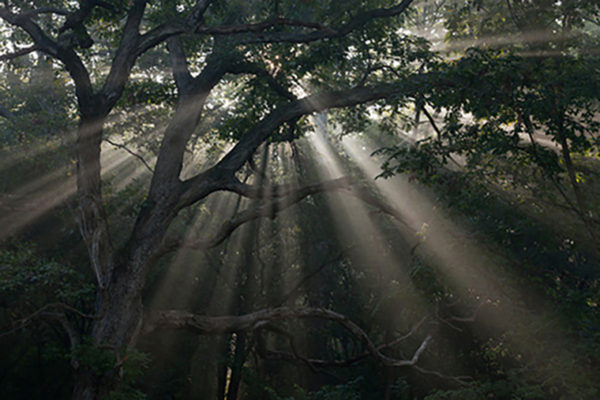Tyson designated an Earth Observatory
A 60-acre plot in Washington University in St. Louis’ Tyson Research Center has been named a Forest Global Earth Observatory, or ForestGEO. The oak-hickory forest in the rolling foothills of the Ozarks joins a network of 51 long-term forest study sites in 23 countries, including eight others in the United States. Together, the forests, containing roughly 8,500 species and 4.5 million individual trees, comprise the largest, systematically studied network of forest-ecology plots in the world.
Hydrogeologist questions reservoir releases and blasting rock to deepen the Mississippi for barge traffic
Coverage of the recent shipping crisis on the Mississippi River assumes that the appropriate response to a problem like low water levels is to find an engineering solution. Washington University in St. Louis hydrogeologist Robert E. Criss disagrees. He feels the river has been over-engineered and that many of the engineering “solutions” are not economic if all of their costs, including those to the taxpayer and to the environment, are taken into account.
Brown School student gives firsthand account of rural life in drought-ridden Africa
According to the United Nations, nearly 10 million people in Africa are experiencing one of the worst droughts in 60 years. Drought conditions are now leading to famine. Michael Galvin, a second-year student at the Brown School at Washington University in St. Louis, is in the east African countryside as part of a team testing the effectiveness of KickStart, a social enterprise selling low-cost technologies such as irrigation pumps to help alleviate poverty. Galvin is blogging about the farmers and families he and team members are visiting through stories, video and photos (http://kickstartblog.wordpress.com/ ). His entries give a powerful look at how the drought is impacting lives.
After drought, ponds “keep up with the Joneses”
WUSTL senior Ruth Poland and Jonathan Chase, Ph.D., associate professor of biology and director of WUSTL’s Tyson Research Center, check species out in one of Tyson’s ponds.An ecologist at Washington University in St. Louis has discovered that after ponds dry up through drought in a region, when they revive, the community of species in each pond tends to be very similar to one another in species composition.
Forget rainy springs
Courtesy photoSculpture by Wesley Anderegg, Lompoc, CASo you think you know mosquitoes? Consider the venerable law that rainy weather is the cause of increased mosquito populations. An ecologist at Washington University in St. Louis says if you believe that, you’re all wet.

